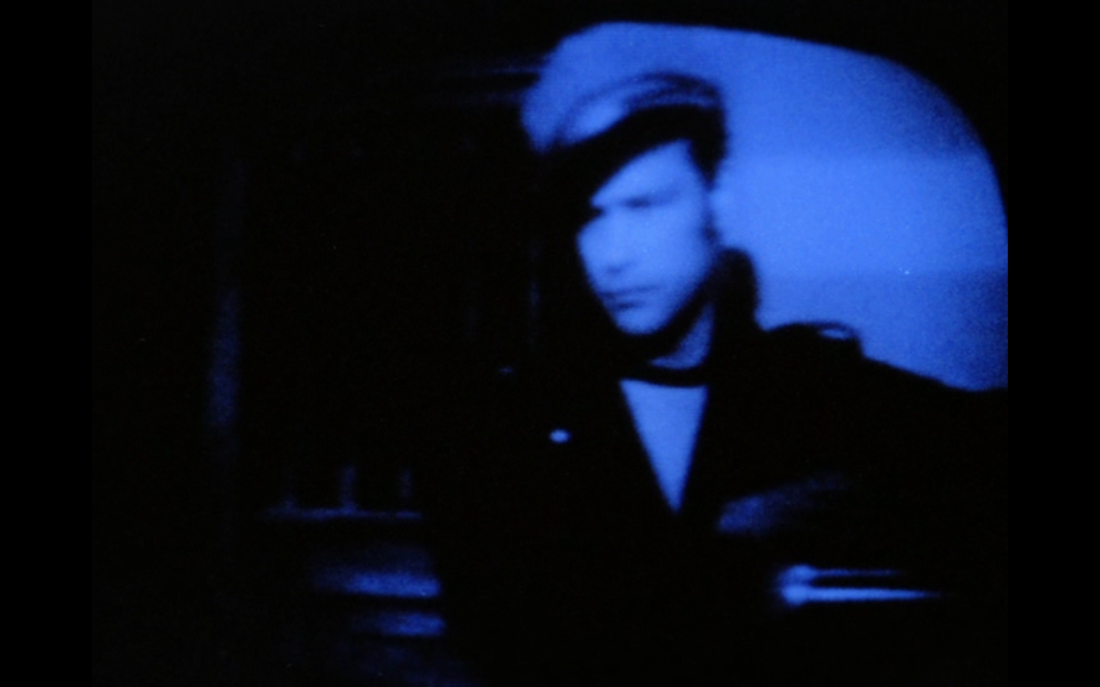The King of Marvin Gardens is a meditation on the emptiness of life and the desire for connection and fulfillment. The filmmakers communicate this through the idiosyncratic actions of the characters and the production and set design.
One of the most noticeable aspects of the film is its giant, spacious sets and locations. The empty beach, the deserted boardwalk, the vacant auditorium and the lobby of the Essex Carlton are all massive, dwarfing the characters in them. The small graphic weight the characters hold does not suggest their insignificance. Rather, the emptiness of the hollow surroundings seems to be suffocating them.
The sets and locations are filled with objects taunting the characters. Billboards leer over the boardwalk, ornate houses rise just off the beach, and marble columns line the lobby of the Essex Carlton. The elegance of the interior of the Essex Carlton or the consumerism of the Coppertone billboards mocks the character’s situations. Sally tries to escape some of this consumerism by burning her makeup collection; but in reality it has no effect on her happiness.
One of the most depressing scenes in the entire film is the faux Miss America pageant. The theatricality of a beauty pageant with only one contestant and no audience in a vast, abandoned space is sad enough. But the low-key lighting and premature ending (they can’t even get the gaffer to stick around) make the situation unbearable. The characters go from sorry to pitiful.
Another scene that demonstrates the emptiness of life and lack of fulfillment is the scene after Sally murders Jason. Sally immediately walks into the bathroom and tries to turn off the shower. The act is devoid of meaning; Sally is just trying to do something. Similar to Joe from Midnight Cowboy and Bobby from Five Easy Pieces, Sally is doomed to wandering aimlessly.
Observation
I found this film rather hard to analyze. Part of the reason is because I see Ellen Burstyn’s character Sally as the true emotional center of the film, being dragged around aimlessly by the other characters. Her only dream is that of affection, but the other characters continually put their own desires ahead of hers. She almost has no will of her own. I was also left slightly confused by the opening and closing monologues to the film. If the opening one was a fabrication by David, then isn’t it possible that the events of the film are the content of his radio show that ends the film? If nothing else, it would explain the presence of some of the more surreal scenes.
One of the most noticeable aspects of the film is its giant, spacious sets and locations. The empty beach, the deserted boardwalk, the vacant auditorium and the lobby of the Essex Carlton are all massive, dwarfing the characters in them. The small graphic weight the characters hold does not suggest their insignificance. Rather, the emptiness of the hollow surroundings seems to be suffocating them.
The sets and locations are filled with objects taunting the characters. Billboards leer over the boardwalk, ornate houses rise just off the beach, and marble columns line the lobby of the Essex Carlton. The elegance of the interior of the Essex Carlton or the consumerism of the Coppertone billboards mocks the character’s situations. Sally tries to escape some of this consumerism by burning her makeup collection; but in reality it has no effect on her happiness.
One of the most depressing scenes in the entire film is the faux Miss America pageant. The theatricality of a beauty pageant with only one contestant and no audience in a vast, abandoned space is sad enough. But the low-key lighting and premature ending (they can’t even get the gaffer to stick around) make the situation unbearable. The characters go from sorry to pitiful.
Another scene that demonstrates the emptiness of life and lack of fulfillment is the scene after Sally murders Jason. Sally immediately walks into the bathroom and tries to turn off the shower. The act is devoid of meaning; Sally is just trying to do something. Similar to Joe from Midnight Cowboy and Bobby from Five Easy Pieces, Sally is doomed to wandering aimlessly.
Observation
I found this film rather hard to analyze. Part of the reason is because I see Ellen Burstyn’s character Sally as the true emotional center of the film, being dragged around aimlessly by the other characters. Her only dream is that of affection, but the other characters continually put their own desires ahead of hers. She almost has no will of her own. I was also left slightly confused by the opening and closing monologues to the film. If the opening one was a fabrication by David, then isn’t it possible that the events of the film are the content of his radio show that ends the film? If nothing else, it would explain the presence of some of the more surreal scenes.

 RSS Feed
RSS Feed